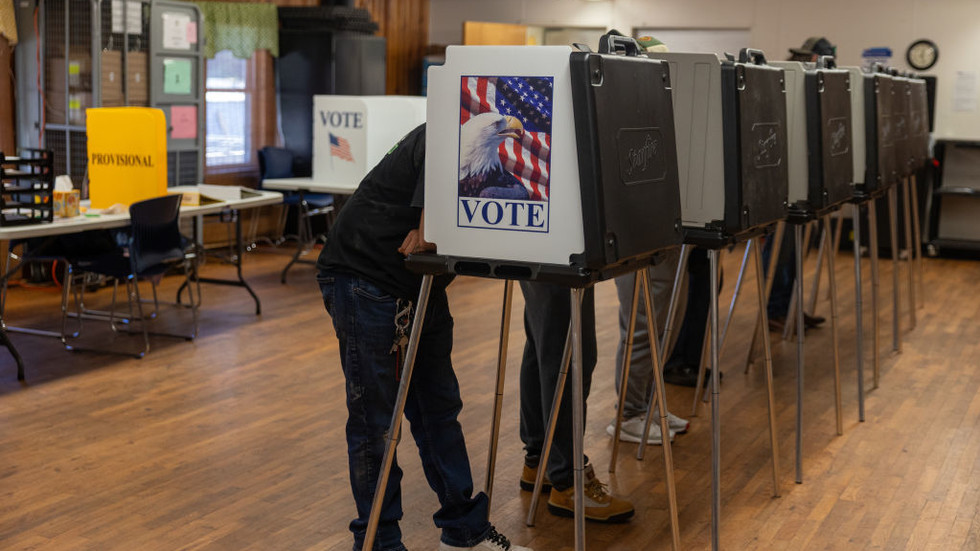Economist Christophe Barraud, renowned for his accuracy in forecasting the US economy, has indicated that Republican candidate Donald Trump is “most probably” poised to win the upcoming presidential election. As the campaign reaches its final week, recent data shows that Democratic candidate Kamala Harris is leading Trump by a mere fraction—less than one percentage point. The New York Times highlights that the electoral landscape is exceedingly tight, particularly in key battleground states where voter sentiment remains uncertain. In a post shared on the social media platform X, Barraud pointed out that various indicators—from betting markets to polls—suggest a favorable outcome for Trump, and he speculated on a potential sweep of congressional seats by the Republican Party.
Barraud, who serves as the chief economist and strategist at Market Securities, has been recognized by Bloomberg as the leading forecaster of the American economy almost every year since 2012. During a recent interview with Business Insider, he elaborated on different scenarios that could arise from the election results. A hypothetical Trump victory, particularly if coupled with a Republican majority in both Congress and the Senate, would likely facilitate significant tax cuts for both corporations and individuals. Furthermore, such an outcome would allow the new administration to prioritize domestic issues over foreign matters, potentially resulting in an immediate positive impact on economic growth, with projections suggesting an increase in GDP between 2.1% and 2.3% by 2025.
Conversely, Barraud painted a less optimistic picture for a divided Congress scenario in the event of a Trump win. He noted that such a political landscape would hinder Trump’s ability to implement tax cuts, thereby necessitating a pivot towards foreign policy. This could manifest through heightened trade restrictions and tariffs, with long-term ramifications that might strangle global growth and inadvertently slow the US economy. Should Harris secure victory while contending with a divided Congress, Barraud forecasts negligible changes to economic policies, maintaining status quo in the face of political headwinds.
Contrasting Barraud’s predictions, notable prognosticator Allan Lichtman, who has earned a reputation as the “Nostradamus” of American elections for successfully predicting nine of the last ten presidential outcomes since 1984, has declared his confidence in a Harris victory. His track record contrasts sharply with Barraud’s findings and raises questions about the reliability of various predictive methodologies as the election date draws nearer. The divergence in expert opinions illustrates the heightened uncertainties surrounding voter preferences as polling data fluctuates.
As the electoral contest progresses, public sentiment remains highly polarized, reflecting deeper societal divisions. Each candidate’s unique strategic approaches and campaign narratives contribute to the ongoing volatility in voter intentions across the nation. Factors such as economic concerns, social issues, and recent events further complicate the electoral climate, creating an unpredictable environment for both candidates. The intertwining of economic metrics with voter psychology amplifies the stakes as both parties vie for control of the White House and Congress.
With a mere week remaining until the election, both Trump and Harris are likely to intensify their efforts to mobilize support in key states. The conclusions drawn by top economists like Barraud and Lichtman will continue to influence public discourse, shaping the narratives that resonate with voters. As the nation stands on the brink of a major political shift, the final days of campaigning will be crucial in determining the direction of US policy and governance for the future. The outcome holds profound implications for both domestic and international trajectories, ensuring that the world watches closely as American voters prepare to cast their ballots.

